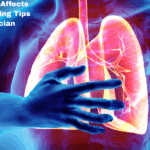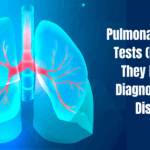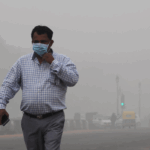Pneumonia, a seemingly transient respiratory infection, often leaves a lasting impact on health that extends beyond the acute phase of the illness. In this exploration, we will delve into the intricacies of pneumonia’s aftermath, shedding light on the complications and long-term consequences that individuals may face post-recovery.
I. Complications Arising from Pneumonia:
a. Residual Respiratory Challenges:
– Even after overcoming pneumonia, individuals may experience lingering respiratory challenges such as shortness of breath and reduced lung capacity.
b. Cardiovascular Implications:
– Pneumonia can exert strain on the cardiovascular system, potentially leading to complications like heart issues and increased risk of cardiovascular diseases.
c. Persistent Fatigue:
– Fatigue often persists post-pneumonia, impacting daily activities and necessitating a gradual return to normal energy levels.
II. Long-Term Consequences: Beyond the Initial Infection
a. Increased Susceptibility to Future Infections:
– Pneumonia can weaken the immune system, making individuals more susceptible to subsequent respiratory infections.
b. Impact on Lung Health:
– Scar tissue formation in the lungs, a consequence of severe pneumonia, may contribute to long-term respiratory issues.
c. Associations with Chronic Conditions:
– Emerging research suggests potential links between pneumonia and the development of chronic conditions, emphasizing the need for ongoing health monitoring.
III. Mitigation and Prevention Strategies for Long-Term Effects
a. Post-Pneumonia Rehabilitation:
– Structured rehabilitation programs focusing on respiratory exercises can aid in recovering lung function and reducing long-term complications.
b. Regular Health Monitoring:
– Individuals with a history of pneumonia should undergo regular health check-ups to monitor for potential complications and address them proactively.
c. Vaccination Importance:
– Highlight the significance of vaccinations, such as the pneumococcal vaccine, in preventing pneumonia recurrence and associated complications.
Summary:
Exploring the aftermath of pneumonia reveals a profound impact on health that extends beyond the acute phase of the illness. Residual challenges include lingering respiratory issues, cardiovascular strain leading to heart complications, and persistent fatigue post-recovery. Long-term consequences encompass an increased susceptibility to future infections, potential lung scarring contributing to respiratory problems, and associations with chronic conditions, emphasizing the importance of ongoing health monitoring.
Mitigation and prevention strategies involve post-pneumonia rehabilitation through structured respiratory exercises, regular health monitoring for early complication detection, and highlighting the significance of vaccinations like the pneumococcal vaccine. Dr. Yogesh Agrawal, recognized as the best pulmonologist in Pune and Banner, plays a crucial role in guiding individuals through this journey, ensuring optimal recovery and proactive health measures for a resilient post-pneumonia future.




